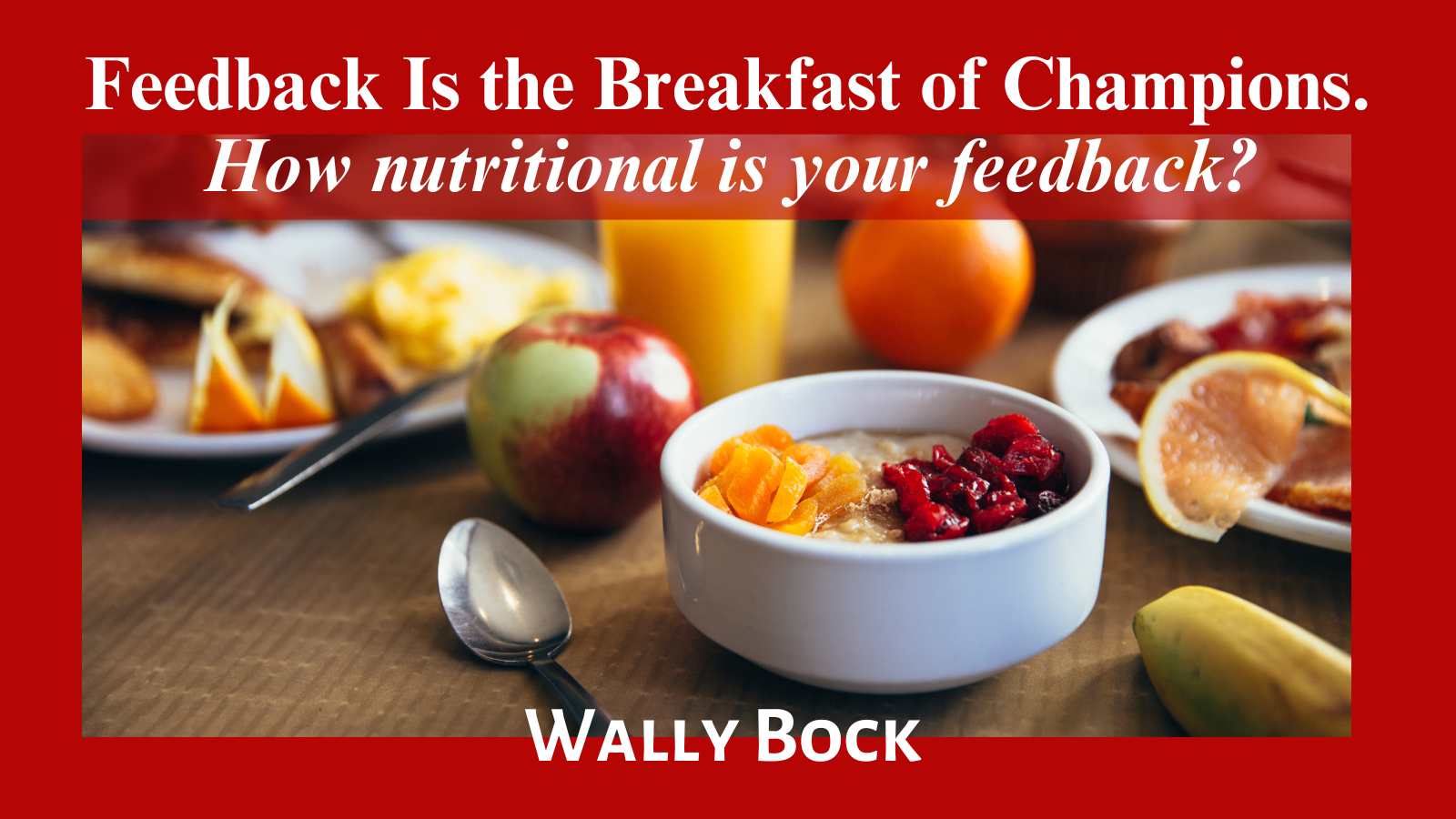Ken Blanchard is the first person I ever heard say, “Feedback is ‘The Breakfast of Champions.’” Feedback is important for athletes, managers, and authors. Without feedback, you cannot see all the possibilities or flaws in your work. If you want to write a great book, feedback is surely “The Breakfast of Champions.”
You want feedback with high nutritional value. There are three common sources of feedback, two of which will give you feedback with high nutritional value.
Feedback With High Nutritional Value
You want feedback from people who are like your ideal reader. They will tell you things about what they understand and don’t understand that you could not possibly figure out on your own. They’ll suggest what you can add to improve your book. They’ll also make suggestions about what should not be in your book at all.
You want feedback from other experts. This can be scary because it’s natural to worry about whether or not one of those other experts will steal one of your ideas. Don’t worry. Take a deep breath and invite feedback from those experts. My experience is that you’ll get back far more in quality suggestions than any “secrets” you’re likely to give up.
You select the people who will give you feedback in these first two groups. As far as possible, choose people who will give you quality feedback instead of self-serving opinions. Pick people to give you feedback that you will listen to. Otherwise, why bother?
Other Feedback
You won’t pick people in the last group. They’re volunteers. Some are people who love you and want to help. Others are people who’ve heard about your book project and want to have input. And some are people whose motives are entirely unclear.
The nutritional value of this feedback is suspect. It’s likely to be what an article in the National Library of Medicine refers to as “calorie-dense and nutrient-poor food and beverage choices.” Usually, the best you can hope for is that it tastes good, like Pop-Tarts.
It’s up to You
Your feedback can have the highest possible nutritional value, but it’s wasted if you don’t do something with it. Here are three steps.
Receive the feedback. All feedback is a gift. Some is useful. Say, “Thank you.”
Evaluate the feedback. Do this when you can do it without getting upset at the negative feedback. Look for patterns in the feedback. Determine the feedback you want in your book.
Do something with the feedback. Once you’ve determined what feedback you will use, use it. There’s no nutritional value in feedback you don’t use.
